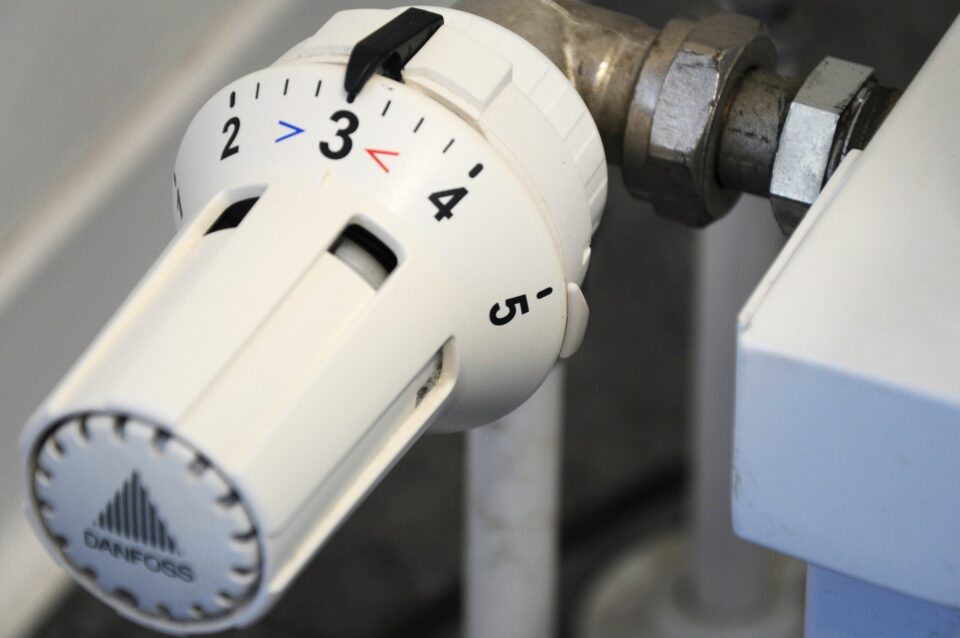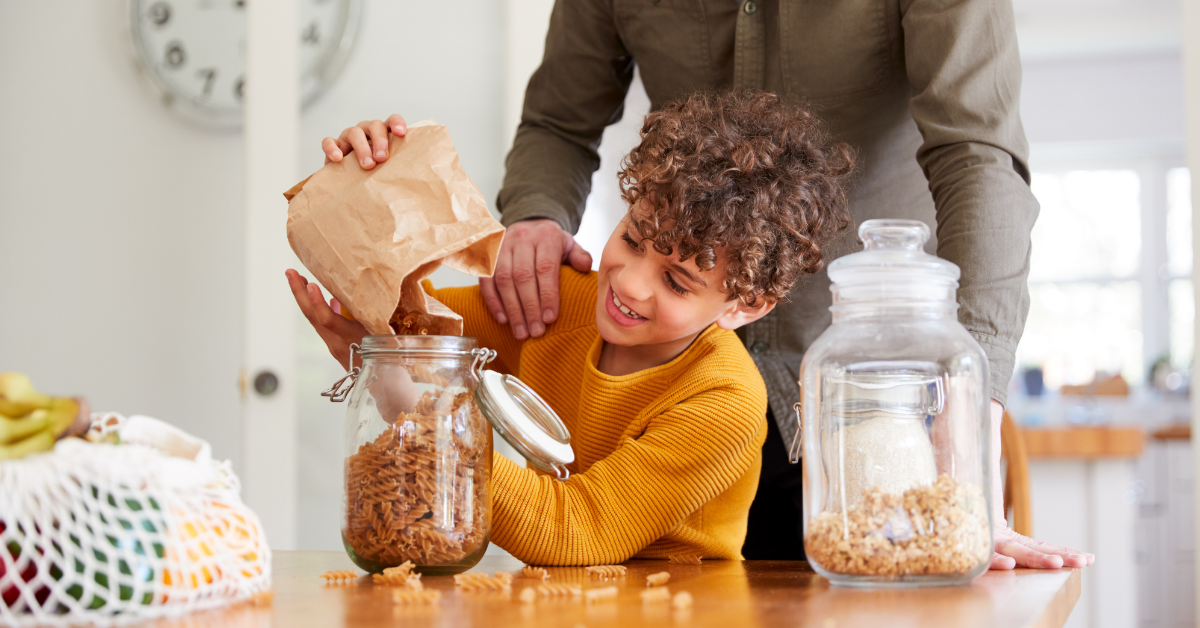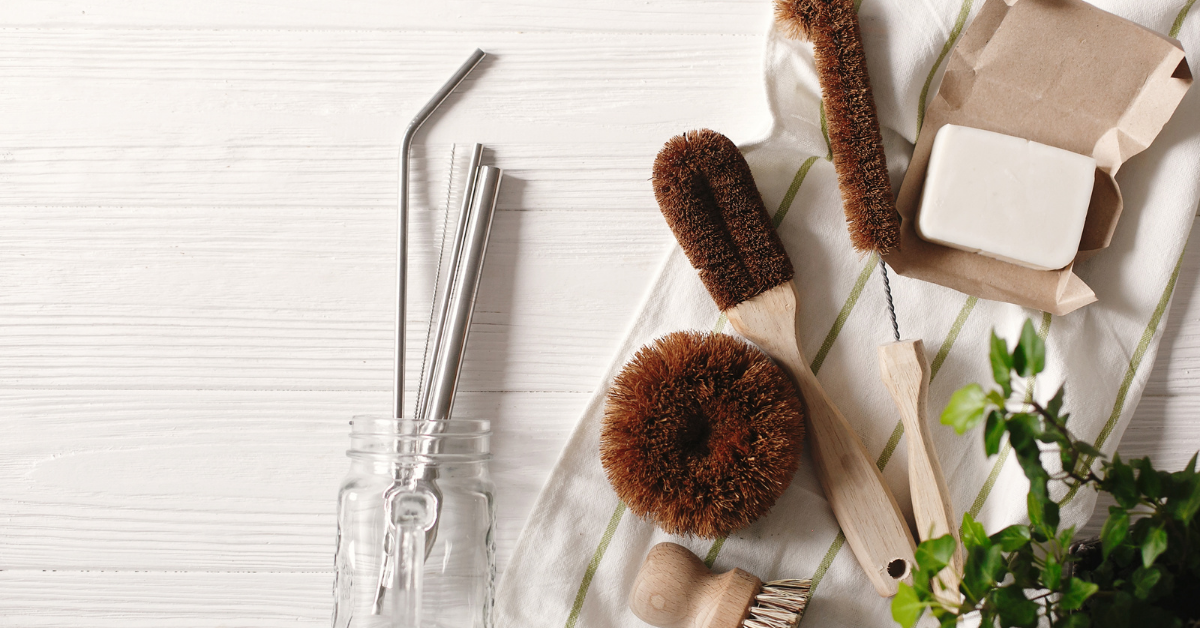
Zero Waste Week: Saving Water, Electricity and Heating

When we think about the term zero waste we usually first think about what goes out of our house and into the bin, but zero waste can be applied to many areas of your home and lifestyle and one that perhaps a lot of us overlook are right there in use each and every day. Saving water, electricity and heating will all have a big impact on protecting our environment and if you get this right, you’ll also end up saving yourself an awful lot of money in the long run too! Here are a few ways in which you can save on all of these…
Saving Water
Turn the Tap off!
It’s something we’ve all been told as children and have all said to our own – turn the tap off whilst you brush your teeth. It is a really simple step that you can take but it can make a big difference. Leaving a tap running for 2 minutes twice a day, quickly and surprisingly builds up and it is estimated that you can waste 12 litres of water each time you brush! Not only is this costing our environment it is also costing you.
Collect Rainwater
How you choose to collect rainwater is up to you – water butt, buckets, old sinks, barrels – but it is so important that we try to. This water can be used on your garden instead of your hose and can save up to 5,000 litres of water each year.
Quick Shower
Taking quick showers rather than using a bath is a sure way of saving water. The more you can get done in a few minutes in a shower, the better it is for the environment. However, having said that, if you fancy a long time in the water, 30 minutes in the bath will always be better than 30 minutes in a shower. If you have a power shower, this can also add to the amount of water you waste so it is always worth weighing up the options. Short and sweet showers will always save.
Fix Leaking Taps
Did you know that a dripping tap can waste 15 litres of water a day which can result in up to 5,500 litres of water a year?! Get that plumber booked in asap.

Choose Eco Settings
The eco settings on your washing machine and dishwasher may be off-putting due to the longer cycles but these will use less water so are a far better option.
Use The Dishwasher
You may think that washing up by hand would use less water but in actual fact, if you fill your dishwasher up each time and (as mentioned above) choose an eco option, you will save water. If you do want to wash up by hand, add a washing up bowl to reduce the volume of water required (see below for what else you can do with this water).
Wash Less Often
Reducing your wash loads by only washing what is truly dirty and smelly will not only reduce your workload but will also reduce the amount of water that your household uses. I have some tips on how to achieve this in this blog post here.
Cistern Displacement Device
This is basically a device (usually a bag) that sits inside the cistern of your toilet resulting in less water filling it up. Using one of these could save up to 3 litres of water for every flush! Top tip, check if your water supplier gives these out for free before shopping around but if not, then SaveMoneyCutCarbon sell them here.
Boiling Water
I have 2 tips here, first off, only ever boil the amount of water that you require. This will not only save on water wastage but it will also save on electricity. My second tip is to boil a full kettle and then put this into a flask. The flask will keep your water hot all day and you can make your tea and coffee this way instead of always reaching for the kettle. Anything left over could then be used if you like to make your own cleaning products as I show in this page here.
Don’t Pour It Away
And that last point leads on nicely to this one, try your best not to pour water away, there may be another use. Water left over in a glass from the day before? Use it to water the houseplants. Water in your reusable water bottles from a day out? Pour it into the water butt. Water from the washing up can be used to water plants in the garden. Some people even place a washing up bowl in the shower with them to collect for the garden too. Once you begin looking at your options, you will find a whole array of water-saving solutions.

Saving Electricity
Electricity Supplier
Have you ever checked how sustainable your energy supplier is? Do they provide renewable energy? Do they use green energy from solar panels or wind farms? Do they offset their carbon? Do they have future promises to help the environment? By choosing the right provider who cares about our environment you will be taking huge strides in reducing your carbon footprint. You may also want to look into having your own solar panels installed on your roof.
Light Bulbs
Your basic light bulb may seem like the best value but these will use far more energy and produce more waste as well as cost you more in the long run. Depending on which energy-saving bulb you choose you could use up to 80% less energy and get up to 25 times more use out of it. There are three main types of eco-friendly light bulbs available on the market: halogen incandescent, LED and CFL. Each has its own pros and cons but the most energy-efficient choices are your LED’s and CFL bulbs. The main thing you can do is your own research here, compare reviews and also speak to the staff in hardware stores; they should be able to help with your needs. What is important to note with these bulbs is that where we previously always looked at watts for choosing a light bulb, when picking an eco one, you will want to look at the lumens. For home use, you will need around 500 lumens and for large dark spaces, you will need around 1000 lumens. Of course, in order to be as waste-free as possible, only make this change as your current light bulbs come to the end of their life.

Sensor Lights
If like us, you have young children who get up in the night and need to be able to see where they are going, the most common option is to leave a hallway/landing light on I expect or perhaps you have a plug in night light? All of which are using up energy which is costing you money and isn’t good for the environment. A great solution to this is to purchase battery powered sensor lights that only come on at night and only when they sense movement. We use these lights from SaveMoneyCutCarbon and they have made such a difference. The kids know that these will come on when they get up and we get to save on our electricity bill
Don’t Leave Me On Standby!
Did you know that electrical items that are left on standby still use up energy and, depending on the age of the appliance, it could be using up to 15%? That means that even though you aren’t using it, it is still costing you money and using vital energy resources. The Energy Saving Trust believes that an average UK home wastes between £50 and £86 each year just by leaving appliances on standby so switch it off to ensure you are helping to save the planet as well as your wallet!
Get Unplugged
Items that are left plugged in but are not wired up to anything– for example, you remove your phone from the charger but don’t turn the socket off– will continue to use a small percentage of energy (the amount will vary depending on the appliance, age, energy-saving modes and so on). If there is still electricity there I would also be concerned about fire risks. Turn it all off and unplug the item to be on the safe side.
Washing and Drying
We all have to wash and dry our clothes but a lot of modern-day habits are having a big impact on our carbon emissions. Many people wash every day, many are washing small loads and it is thought that a lot of this washing isn’t necessary. With a big focus on cleanliness and germs in the last few years, washing habits have increased with some people even stating that they wash towels after every single use! All this laundry is leading to an increase in energy usage which increases your carbon emissions…
“Washing and drying a load every two days creates around 440kg of CO2 each year, which is equivalent to flying from London to Glasgow and back with 15-mile taxi rides to and from the airports”
The Guardian
Can you believe that one tumble dryer load will use around five times more electricity than washing? Plus using one is the equivalent of turning on 225 light bulbs for an hour! By reducing how often you wash and line drying instead, you will be making a big dent in your carbon footprint.
Saving Heating
Of course, before we think about turning the heating on, there are a few steps we can take:
Extra Layers
If you are a little cold, first try putting on some extra layers of clothing or grabbing some blankets or throws. Keeping some throws around the living room will mean you’ll never have to walk too far (if at all!) to warm yourself up.
Draft Excluders
Stop those cold drafts at the source. Add draft excluders to your doors in order to protect your home from becoming too chilly.
Insulation
A well-insulated home will trap heat inside and help to prevent the need for turning the heating on quite so much. If you think your home is cold far too often, you may want to bring in an expert to take a look at efficient ways of insulating your home such as updating the wall cavity materials, checking the quality of insulation inside the loft, upgrading your windows to double or triple glazing, have the roof checked over for damage/gaps/slipped tiles etc. By dealing with any maintenance jobs head-on, you’ll be saving yourself a lot of money in heating costs and be running a more energy-efficient home which is far more environmentally friendly.
Onto the heating…
Annual Boiler Service
Not only should you do this from a safety point of view but a healthy boiler will mean it will run efficiently. By having it checked, parts replaced or perhaps the whole appliance replaced you will be taking great steps in reducing wastage and saving money.

Turn it Down
Even if you turn your thermostat down by just 1°C, a typical home can save around £60 and 310kg of carbon dioxide a year! (According to the Energy Saving Trust April 2020).
Room thermostats
Did you know that if you have just one thermostat that it will work on the set temperature until just one room in the house meets that? This means that you will have varying temperatures across your home with some rooms being cooler and others being warmer with no consistency at all. You may also be heating rooms that don’t require it. By choosing to have room thermostats, you will be able to customise each room in the house and save energy and money all at the same time.
Timers
A timer allows you to schedule when your boiler turns on and off over a 24-hour period, so you don’t have to do it manually yourself. When you’re setting up your heating schedule, think about when you will really need your heating on. For example, you may want to warm your house just before you come home on a winters evening but you’ll want this to turn off once everybody is home as the house will warm naturally. You will also want it off at night but perhaps want a little blast for a chilly morning? A timer is a simple way of controlling your heating and it means you’ll never forget to turn it off.
Set Your Radiator Temperature
If you have radiators with their own thermostats, make sure these are set according to your needs. Turn your radiators off in the rooms you don’t need heating and set them lower in rooms that don’t need to be too warm (a bedroom for example).

Bleed Radiators
If there is air within your pipes and radiators, they won’t be able to function correctly. By releasing this air and checking the water quality, you will be running a far more efficient heating system.
By taking some of these small, simple steps, you could make a big difference to the environment by reducing waste, saving on our vital resources and reducing your carbon footprint.

Pin for later:





